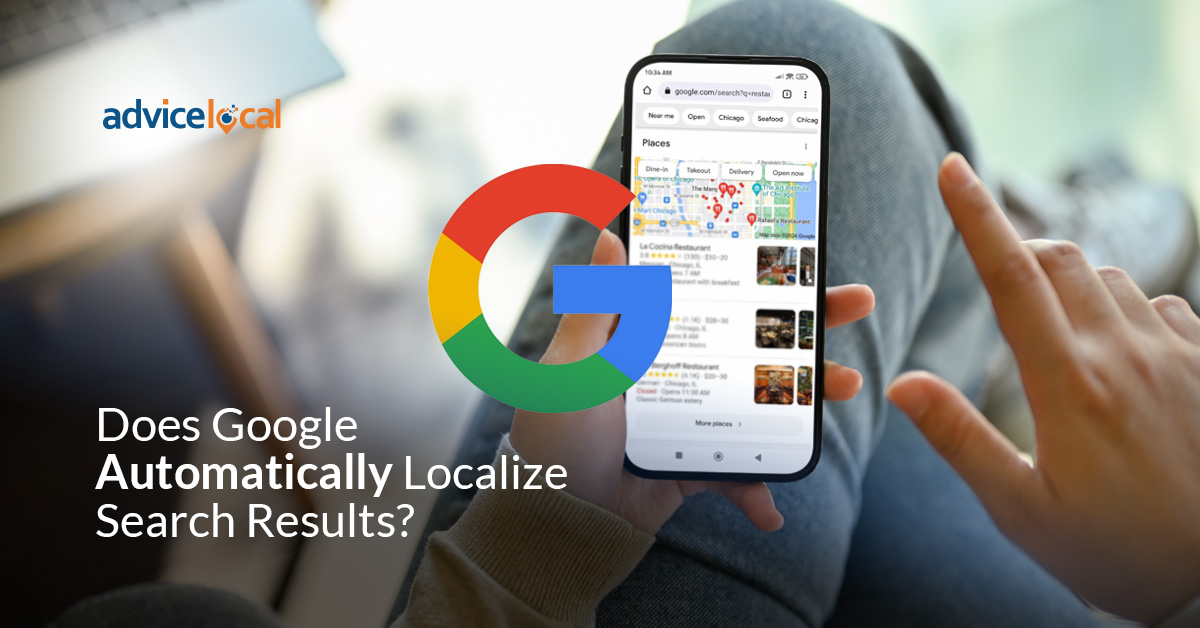Google’s focus in recent years has increasingly shifted towards local search, driven by the rise of mobile and location-based technologies. Embracing strategies such as top-rated listing management services for local SEO is just as important as ever. If you’re hoping to secure top placement in search results in this environment, you must understand how Google returns search results based on a user’s location.
Does Google Personalize Search Results Based on Location?
Yes, Google uses a person’s current location to deliver more accurate search results. This approach is most apparent when searching for a service – “car accident attorney” for example – without attaching a city name. In such instances Google invariably provides results featuring the local pack, and organic search results that are based on the searcher’s current location.
Even for a more generic term like “hats,” the results will recognize the country and include a combination of geographically relevant stores and common sites like Wikipedia. For businesses, this typically means that every target keyword will be influenced in some way by localized results.
How to Help Businesses Appear in Google’s Local Search Results
As a local agency or marketer, targeting localized search results can actually deliver more targeted traffic and a higher conversion rate. Customers in your client’s city can find that client’s business far easier – but you must make sure their website is optimized for local searches.
Why Listing Management Matters for Local SEO
Boosting local presence with business directory listings is a strategy familiar to most digital marketers. And one could argue that Google’s localized focus only adds to its importance, as a business’ proximity to the searcher partly determines who gets a search placement.
When users grant Google location permission, their precise location will determine the best search results. However, for those who do not give permission, Google estimates the general area (an area larger than one square mile with at least 1,000 users) using available information like IP address and previous activity, depending on preferences.
Listing management influences whether a business is featured prominently within this sphere, as Google uses the data to classify a business. Listing data naturally includes the business name, address and phone number (NAP). It also uses categories, keywords and other information to present the best local results depending on the search query. And if this data is incorrect or inconsistent, Google will be less likely to give it prominence over competing businesses.
Prioritizing the Google Business Profile
Listing management allows you to monitor and update many platforms, but the Google Business Profile (GBP) will inevitably take priority. Unlike some listing services, GBP requires ongoing monitoring and updating. For example, to ensure that a business’ GBP data always matches our database we created the GBP Sync service within our Enhanced GBP Tool for agencies. We also auto-reject public edits for you, avoiding unwanted profile changes.
Our Review Monitoring Tool also helps you monitor and respond to reviews, and reviews often contain valuable keywords. These services work in combination to target Google’s three big ranking factors – relevance, distance and prominence – so your business clients have the best chance of securing top placement in search.
Premier Listing Management and GBP Services for Agencies
At Advice Local, we develop cutting-edge tools and services for agencies and local marketers. From streamlined listing management to straightforward review monitoring, local search marketing is easy with our dashboard solution. To try it for yourself, call (214) 310-1356 or request a demo now.




